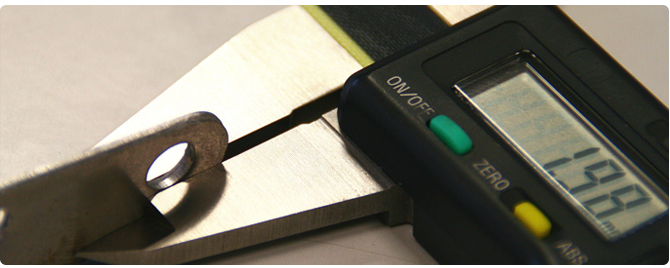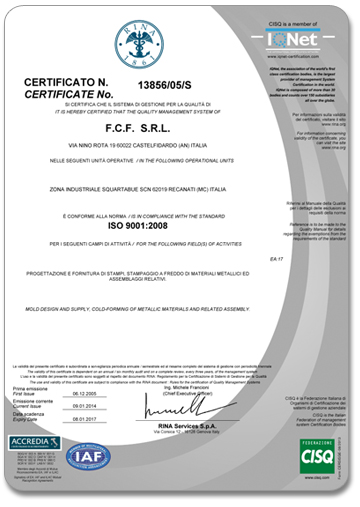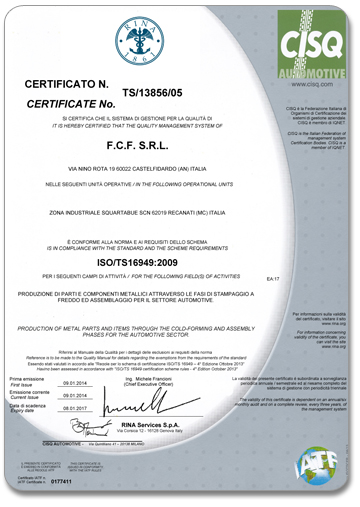



ISO 9001:2008The ISO 9001 rules identify the definition of quality systems requirements. It identifies a series of rules and guide lines developed by ISO, which propose a management system for the quality, thought to manage company process in order to be addressed to the improvement of efficacy and effectiveness of the organization besides the satisfaction of the customer. The rules ISO 9001 are universal and their applicability are out of consideration of the dimension or of the activity sector . They define general principles that the company must follow: For this they are not applicable to products but to the company which produces them. According to this point of view, the ISO 9001 guarantees the control of the productive process and its effectiveness. |
 |

ISO TSThe ISO/TS16949 is an ISO technical specification aimed at the development of a quality management system that provides for continual improvement, emphasizing defect prevention and the reduction of variation and waste in the supply chain. It is based on the ISO 9001 standard and the first edition was published in March 2002 as ISO/TS 16949:2002. It was prepared by the International Automotive Task Force (IATF) and the "Technical Committee" of ISO. It harmonizes the country-specific regulations of quality Management systems. About 30 percent of the more than 100 existing automobile manufacturers affiliate the requirements of the norm but especially the large Asian manufacturers have differentiated, own requirements for the quality management systems of their corporate group and their suppliers. F.C.F. uses only raw materials in according to Reach and RoHS directives. |
 |